The Third International Meeting on Arboviruses and their Vectors will take place on September 5 and 6 at the University of Glasgow. As we see continuing transmission of pathogens such as dengue and chikungunya, the emergence of other arboviruses, as well as progress with understanding vector biology (including ticks, mosquitoes and midges) this area of research remains of high importance. The many scientists and clinicians from different areas of expertise who share an interest in arboviruses need a dedicated forum to discuss viruses and vectors in depth. This meeting will provide a great opportunity to do so, and for people in the arbovirus research community to meet and exchange ideas.
To get the latest news and updates, follow us on Twitter @MicrobioSoc using the hashtag #IMAV19, and like our Facebook page.
Journal of General Virology has recently updated the ‘Arboviruses and their Vectors’ collection and is inviting submissions of original research and Reviews. Authors should submit their manuscript to the online submission system indicating in their cover letter that the manuscript it is intended for the ‘Arboviruses and their Vectors’ collection. To submit a review, authors should first contact Colin Crump, Reviews Editor, via [email protected].
Please note that this is a draft programme and is subject to change.
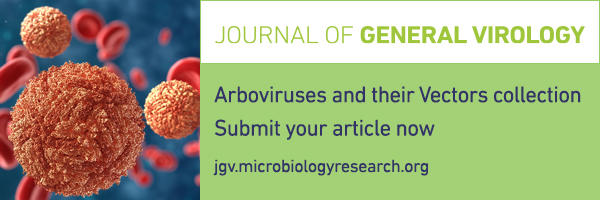
Image: ErikKartis/Thinkstock.
Please find below more information about our invited speakers, who will present their work and research at IMAV 2019.

Bridget Wills is Professor of Tropical Medicine and Honorary Consultant in Paediatrics at the Centre for Tropical Medicine and Global Health (University of Oxford, UK). She trained in paediatrics and infectious diseases in the UK, and has worked at the Oxford University Clinical Research Unit, based at the Hospital for Tropical Diseases in Ho Chi Minh City, Vietnam, for more than 20 years. Her clinical research focuses primarily on dengue, and incorporates studies designed to improve diagnosis and risk prediction for severe dengue together with randomised intervention trials to improve management of dengue. She is also interested in the pathophysiological mechanisms responsible for the systemic vascular leak syndrome and coagulopathy that are the major complications of dengue.

Carolyn Coyne is a professor of Pediatrics at the University of Pittsburgh School of Medicine. Her laboratory studies the mechanisms by which barrier surfaces restrict viral infections, with an emphasis on the GI tract and the placenta.
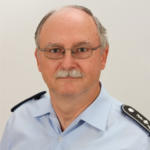
Study of human medicine at the University of Munich. Specialization in medical microbiology at the University and Technical University of Munich. Doctoral thesis on the molecular detection of rotaviruses. 3 years of industrial experience as clinical scientist for antibiotics and vaccines. Head of laboratory at the Dept. of Infection Hygiene at the Technical University of Munich. Since 2004 head of department of Virology & Rickettsiology at the Bundeswehr Institute of Microbiology. Specialized in tick-borne virus infections. Since 2015 head of the German reference laboratory for tick-borne encephalitis. Special interests in TBE and flavivirus diagnosis and on the eco-epidemiology of TBE in Germany and Europe.

Jason Mackenzie has a proven and established track record investigating the manipulation of cellular processes and organelles during virus infection. His main goals are to understand the events of virus replication and how these processes influence cellular functions, thus ultimately defining pathological steps generating disease. In particular, the influences viral replication imparts on immune regulation and dysfunction. He investigates the influence of virus-induced modulation of the lipid landscape and its effects on virus replication and cellular stress responses. He applies this research focus to understand the intracellular replication of members from the Flaviviridae and Caliciviridae family of viruses. He has expertise in molecular biology, protein expression and analysis, imaging at both the light and electron microscope level and investigation of immune regulation.

Kevin Myles is currently Professor of Entomology at Texas A & M University (TAMU). He earned his Ph.D. in Microbiology from Colorado State University in 2002, working under Prof. Barry Beaty, Ken Olson and Carol Blair at the Arthropod Infectious Disease Laboratories (AIDL). After completing his Ph.D., Kevin was awarded a postdoctoral research fellowship by the American Society for Microbiology (ASM) and National Center for Infectious Diseases (NCID), which he served at the Centers for Disease Control and Prevention (CDC), Division of Vector-borne Infectious Diseases, under Dr. Ann Powers. In 2005, Kevin accepted an Assistant Professor position at Virginia Tech University, where he remained until moving to TAMU in 2016. Projects in his laboratory focus on understanding the role of invertebrate antiviral immune pathways in the transmission of mosquito-borne viruses. Kevin’s multidisciplinary approach to this research area has resulted in several key discoveries regarding antiviral immunity in disease vector mosquitoes.

Marc Lecuit, MD, PhD, is a microbiologist and an infectious diseases physician. He is the director of the Biology of Infection Unit at Institut Pasteur and Inserm, professor at the Paris Descartes University and deputy head of the Department of Infectious Diseases and Tropical Medicine at the Necker-Enfants Malades University Hospital. Dr Lecuit's research is focused on understanding the molecular mechanisms underlying the ability of microbes to target host cells, cross host barriers, and disseminate systemically and within tissues, as well as on how host responses affect infection outcome. His laboratory focuses on pathogens that have the ability to induce maternal–fetal and central nervous system infections. Dr Lecuit has made important contributions to the understanding of the biology of infections caused by Listeria monocytogenes and chikungunya virus, and currently also studies Zika virus infection. He is also involved in translational research projects in the International Network of the Institut Pasteur. Dr Lecuit is supported by the European Research Council, is an appointed Fellow of the European Society of Clinical Microbiology and Infectious Diseases (ESCMID) and an elected Member of the European Molecular Biology Organization (EMBO).
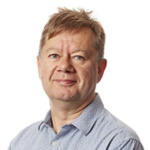
I graduated from Plymouth Polytechnic in 1983 with a degree in Biological Sciences, before PhD study with Ron Hay at the Institute of Virology in Glasgow on adenovirus DNA replication. After a post-doctoral position studying baculoviruses with Bob Possee at the NERC Institute of Virology in Oxford I moved back to Glasgow to the Department of Veterinary Pathology to study the HIV-1 Nef protein with Jim Neil. I was awarded an MRC AIDS Directed Programme Senior Fellowship in 1994, and took up a Lectureship at the University of Leeds in 1997 where I started to develop research interests in hepatitis C virus, funded by the MRC, BBSRC and Wellcome Trust. In 2011 I was awarded a Wellcome Trust Senior Investigator Award. I am Editor-in-Chief of the Journal of General Virology, published by the Microbiology Society, and have previously been a member of the Council of the Society and the Chair of the Scientific Conferences Committee.

Pat Nuttall is Emeritus Professor of Arbovirology in the Department of Zoology, University of Oxford. Her research interests are in the role of tick saliva in transmission of tick-borne infections, vaccine development, and innovative therapeutics derived from tick saliva. She was Director of NERC’s Institute of Virology & Environmental Microbiology in Oxford before becoming Director of NERC’s Centre for Ecology & Hydrology, retiring from the Natural Environment Research Council in 2013 and joining the University of Oxford. Professor Nuttall is a Fellow of Wolfson College, Oxford, where she created Wolfson Innovate to promote entrepreneurism. She gave a TedxOxBridge talk on Drugs from Bugs. Distinctions include the Ivanovsky Medal for Virology in 1996 from the Russian Academy of Sciences, the Order of the British Empire in 2000 for services to environmental sciences, and the Harry Hoogstraal award from the American Society of Tropical Medicine & Hygiene in 2016.

Dr. Best received her Ph.D. in Biochemistry and Molecular Biology from the Australian National University where she studied poxvirus pathogenesis. She conducted her postdoctoral research at Rocky Mountain Laboratories (RML) campus of the National Institute of Allergy and Infectious Diseases (NIAID), NIH in the USA on the complex role of apoptosis in the replication of parvoviruses. She stayed at RML as a Staff Scientist to investigate virus-host interactions involved in evasion of host innate immunity by flaviviruses. In 2009, Dr. Best established an independent laboratory to expand her studies on the induction and evasion of innate immunity by highly pathogenic RNA viruses utilizing the newly built BSL4 laboratories at RML. Dr. Best is on the Editorial Board for several journals including Science Translational Medicine, Journal of Virology and Journal of Biological Chemistry, and was awarded a Presidential Early Career Award for Scientists and Engineers (PECASE) by President Obama for her work.

Dr Zach N. Adelman is a professor in the Department of Entomology at Texas A&M University. Dr. Adelman's research is focused on the development of novel gene editing/gene replacement approaches for disease vector mosquitoes as well as understanding genetic interactions between arthropod-borne viruses and their mosquito vectors. Dr Adelman’s work has been featured in journals such as Science and PNAS; he has served as author or co-author on more than 50 peer-reviewed publications. Dr Adelman’s research program has been funded continuously by the National Institute for Allergies and Infectious Disease at the National Institutes of Health since 2007, with additional support from the Defense Advanced Research Projects Agency, the Agriculture and Food Research Initiative of the National Institute of Food and Agriculture, and the State of Texas. Dr Adelman received his B.A. in Biochemistry from Ithaca College and PhD in Microbiology from Colorado State University; he joined the faculty at Virginia Tech in 2005, and moved to Texas A&M University in 2016.
Abstract submission is now closed. Submissions will be reviewed by session chairs and scientific committee members and you will be informed of the outcome directly. By submitting an abstract to this conference, you are indicating to the session organisers your commitment to attend the event.
Abstracts should be a maximum of 250 words. The Society has produced a guide to give delegates some tips from the session organisers on how to write a great abstract, which can be downloaded below:
Please note that the abstract is the only information session organisers use when deciding whether to accept your work for presentation as an offered oral or poster. If accepted, it will also be published in the abstract book for the conference – so think carefully about what needs to be included.
In order to ensure your presentation runs smoothly, you are asked to comply with the following:
You can download the poster book below.
Those who are presenting a poster must ensure the work is presented as below. We cannot accommodate incorrectly formatted posters during the conference.
The Journal of General Virology Poster Prize will be awarded to one scientific poster at IMAV 2019. The prize will be awarded to a poster that presents particularly compelling or novel research in the study of arboviruses. It will be presented by Advisory Board member Alain Kohl, with the winner receiving a cash prize, certificate, and a year’s membership to the Microbiology Society.
Journal of General Virology publishes research and review articles that contribute significantly to the field of virology, and includes ICTV Virus Taxonomy Profiles, a unique reference resource from leading viral experts on the classification, structure and properties of viruses.
|
Type |
(Available until Sunday 25 August) |
Full price rate (Available until Sunday 1 September) |
|
Full Member Rate |
£230 |
£240 |
|
Postgraduate Student and |
£170 |
£180 |
|
Non-member Rate |
£330 |
£340 |
Upon registration you should receive an automated confirmation email. Please contact [email protected] if after 24 hours this has not been received.
If you need a letter of invitation for a visa application, we will be happy to supply this after we have received full payment.
Please note that all conference delegates are responsible for their own travel and visa arrangements, the Microbiology Society will not take any responsibility for travel or visa problems.
All registration fees must be paid in full BEFORE arrival at the meeting. Any outstanding registration fees must be paid before admittance will be granted to the meeting.
Refunds will not be provided.
Substitutions of attendees can be made at any time by contacting [email protected].
This meeting will take place at the Hunter Halls, University of Glasgow, Main Building.
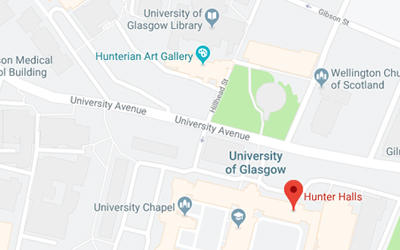
Venue address:
Hunter Halls
Gilbert Scott Building
University of Glasgow
Glasgow G12 8QQ
Discounted travel is available for delegates for journeys between Glasgow Airport and City Centre with Glasgow Taxis:
Pre-book your taxi by phoning +44(0)141 429 7070 using the following codes to get the discounted fare.
There is no parking available at the venue.
The convenient drop off point is located immediately outside the main South Front entrance.
Please find more information on the accessibility policy here.
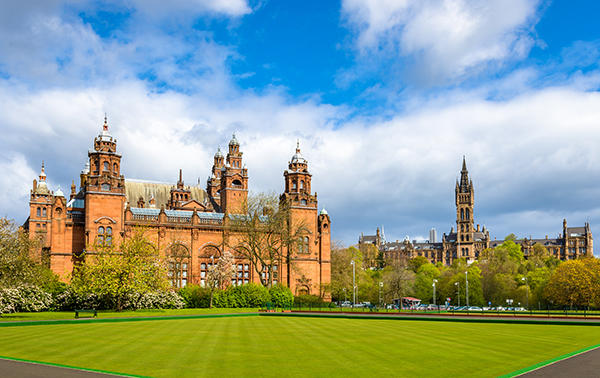
Glasgow is Scotland’s cultural powerhouse, ranked by the Mercer Cost of Living Survey as one of Europe’s most cost-effective cities and the first in the UK to be included in the Global Destination Sustainability Index. With Loch Lomond just 40 mins away, it's the perfect starting point for delegates to discover what Scotland has to offer.
In the UK, Glasgow has the largest academic community outside London, with world-leading research in life sciences, engineering, science and technology.
For delegate offers, travel advice, maps, itineraries and more, visit Glasgow City Marketing Bureau website.
Accommodation is not included in the registration rates for this meeting. Please see below for some local options.
Leonardo Inn Hotel Glasgow West End
Glasgow Marriott Hotel
Glasgow Pond Hotel
Premier Inn Glasgow City Centre (Charing Cross)
Premier Inn Glasgow Pacific Quay (Finneston)
You can download a map of nearby hotels below.
Thursday 5 September, Hunter Halls, University of Glasgow
17:00–18:30
(Civic Reception courtesy of the Rt Hon The Lord Provost and Glasgow City Council)
Friday 6 September, Hunter Halls, University of Glasgow
16:45–18:00
Each evening there will be time to network with the conference speakers, session organisers and delegates at our drinks reception. This will be your opportunity to socialise with your peers, view the posters on display and grab a drink.
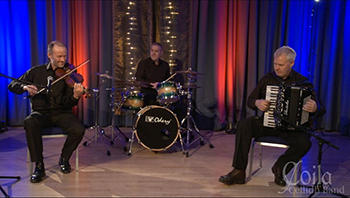
Friday 6 September, Partick Burgh Hall, University of Glasgow
20:00–00:00
Everyone at the meeting is welcome to join the speakers and organisers for our end of conference party, where you can take part in some fun and light-hearted traditional ceilidh dancing with our live band. The doors will open at 20:00, allowing you time to have some supper beforehand, and there will be a cash bar open throughout the evening. Help us celebrate the end of this fantastic meeting with a bang!
Coila Ceilidh Band is a Scottish ceilidh band with 30 years of experience performing traditional music. The band includes an entertaining 'caller' who clearly teaches all the dances, step-by-step, to ensure each and every guest has a fantastic time.
The University of Glasgow is ideally situated for exploring the trendy West End of the city, with a wide selection of cafés, bars, restaurants, boutique shops, museums and green spaces.
Insider tips on the areas can be found on the Glasgow City Marketing Bureau's website.
Also Glasgow City Marketing Bureau have arranged a number of special offers including restaurants, tours and travel that can be found here.
If your considering extending your stay in Glasgow, the following additional links may also be useful:
You can download information about the city of Glasgow below, provided by the Glasgow City Marketing Bureau.
Glasgow City Support Information
Conference delegates can receive discounted rates on tours, restaurants and retail in Glasgow. You can download the latest delegate offers below. Just show your delegate badge to redeem, unless otherwise stated.
Society Conference Grants of up to £300 are available to support eligible members wishing to present at this Focused Meeting. Funding is also available for members requiring support for caring costs associated with conference attendance. Eligible members may apply for an additional £500 to support the costs of childcare.
Members can apply for a grant before receiving notification about the outcome of their abstract submission. A conditional grant offer can be made without evidence of abstract acceptance if unavailable at the time of application. However, evidence must be provided to claim any grant offered.
Applications for this grant are now closed.
Members of the Society who are ineligible for a Society Conference Grant may apply to the 1 June 2019 deadline for our Travel Grants.
Please contact [email protected] for further queries.
Exhibition and sponsorship opportunities are available for this meeting. For more information, please contact [email protected] or download and return the booking form to ensure your presence at the event.
IMAV 2019 Invitation to exhibit
IMAV 2019 Exhibition and sponsorship application form
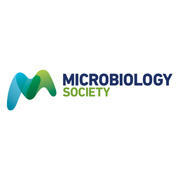
|

|
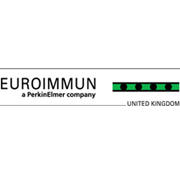
|
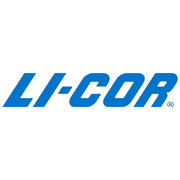
|
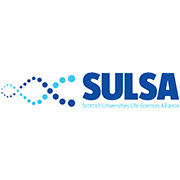
|
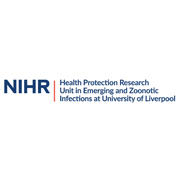
|
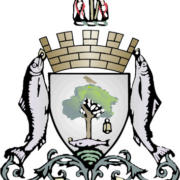
|